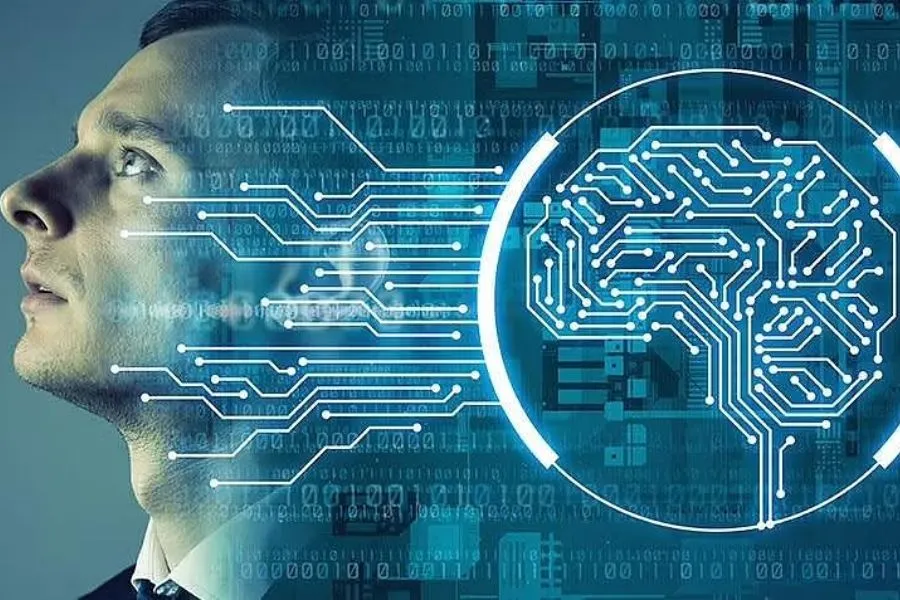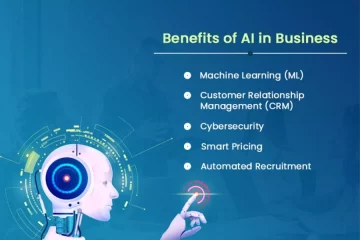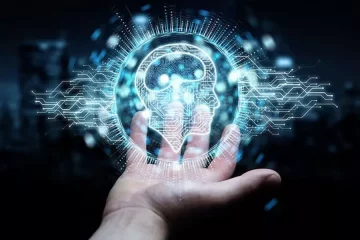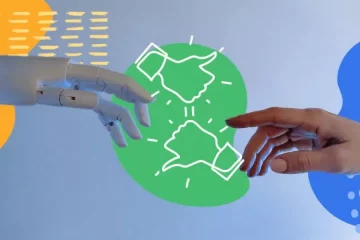AI vs. Human Intelligence: Exploring the Advantages and Limitations of Artificial Intelligence

AI vs. Human | mykaba
Artificial intelligence, or AI, is a branch of computer science that focuses on the development of intelligent machines that can perform tasks that would typically require human intelligence, such as learning, problem-solving, and decision-making. AI is based on the idea that machines can be programmed to think and learn like humans, and it relies on algorithms and data to make decisions.
AI is broadly categorized into two main types: narrow or weak AI, which is designed to perform a specific task, and general or strong AI, which is designed to perform any intellectual task that a human can do. While narrow AI has been around for several years and is already in use in various industries, general AI is still in its early stages of development.
Advantages of Artificial Intelligence
One of the biggest advantages of AI is its ability to process vast amounts of data quickly and accurately. This makes it an ideal tool for tasks such as data analysis, fraud detection, and risk assessment, where it can process vast amounts of information in a fraction of the time it would take a human. AI can also be used to automate repetitive tasks, freeing up human workers to focus on more complex and creative tasks.
Another advantage of AI is its ability to learn from experience. Machine learning algorithms enable AI to improve over time as they are exposed to more data, allowing them to make more accurate predictions and decisions. This has significant implications for industries such as healthcare, where AI can be used to analyze patient data and make diagnoses more quickly and accurately than human doctors.
Limitations of Artificial Intelligence
Despite its many advantages, AI has several limitations that prevent it from fully replicating human intelligence. One of the biggest limitations is its inability to understand context and nuance. While AI can process vast amounts of data, it struggles to interpret that data in the same way that humans can. This means that AI is not yet capable of understanding the complexities of human language and social interactions.
Another limitation of AI is its lack of creativity and intuition. While AI can be programmed to perform specific tasks, it cannot come up with new ideas or approaches on its own. This means that AI is not yet capable of replacing human workers in industries that require creativity and innovation.
Human Intelligence vs. Artificial Intelligence
While AI has many advantages, there are still areas where human intelligence reigns supreme. One of the biggest strengths of human intelligence is its ability to understand context and make decisions based on incomplete or ambiguous information. Human intelligence also has the advantage of intuition and creativity, which enables humans to come up with new ideas and approaches to problems.
However, there are also areas where AI outperforms human intelligence. For example, AI is much better at processing and analyzing vast amounts of data quickly and accurately. AI can also be programmed to make decisions based on specific criteria, which can be useful in industries such as finance and healthcare.
Ultimately, the most significant advantage of combining human intelligence and AI is that they complement each other. By working together, humans and machines can leverage their respective strengths to achieve better outcomes than either could on their own.
AI in Daily Life
AI is already in use in various aspects of daily life, from virtual assistants like Siri and Alexa to personalized product recommendations on e-commerce sites. AI is also being used in industries such as transportation, where self-driving cars are being developed to improve safety and efficiency on the roads.
One of the most significant areas where AI is impacting daily life is in healthcare. AI is being used to analyze patient data and assist doctors in diagnosing and treating diseases. AI-powered medical devices are also being developed to monitor patient health and provide real-time recommendations for treatment.
AI in Business
AI is also transforming the way businesses operate. AI-powered chatbots are being used to improve customer service and reduce the workload on human customer service representatives. AI is also being used to automate repetitive tasks such as data entry and processing, freeing up human workers to focus on more complex tasks.
In finance, AI is being used to analyze market trends and make investment decisions. AI-powered fraud detection systems are also being developed to identify and prevent financial fraud.
AI in Healthcare
AI has the potential to revolutionize healthcare by improving diagnosis, treatment, and patient outcomes. AI-powered medical devices can monitor patient health and provide real-time recommendations for treatment, and AI algorithms can analyze patient data to identify patterns and predict outcomes.
AI is also being used to develop new drugs and treatments, with AI algorithms being used to analyze vast amounts of data to identify potential drug candidates. AI is also being used to identify patients who are at risk of developing certain diseases, allowing doctors to intervene early and prevent the disease from progressing.
Ethics of AI
As AI becomes more prevalent in various industries, it is essential to consider the ethical implications of relying on machines to make decisions. One of the biggest concerns is the potential for AI to perpetuate existing biases and inequalities. If AI algorithms are trained on biased data, they may perpetuate that bias and make decisions that are unfair or discriminatory.
Another concern is the potential for AI to replace human workers, leading to unemployment and economic inequality. It is essential to consider how AI can be used to complement human workers rather than replace them and to ensure that workers are provided with the training they need to adapt to new technologies.
Future of AI
The future of AI is exciting, with the potential to transform various industries and improve human life in countless ways. As AI continues to develop, we can expect to see more advanced and sophisticated applications of the technology, from self-driving cars to AI-powered medical devices.
However, it is essential to approach the development and deployment of AI with caution and consideration for its potential ethical implications. By working together to ensure that AI is used to improve human life in a fair and ethical manner, we can harness the potential of this transformative technology for the greater good.
Conclusion
Artificial intelligence has come a long way in recent years, but there are still limitations to what it can accomplish compared to human intelligence. While AI has many advantages, it struggles to understand context and nuance, and it lacks creativity and intuition. However, by working together, humans and machines can leverage their respective strengths to achieve better outcomes than either could on their own.
AI is already transforming various industries, from healthcare to finance, and its potential for improving human life is undeniable. However, it is essential to approach the development and deployment of AI with caution and consideration for its potential ethical implications, to ensure that it is used to improve human life in a fair and ethical manner. The future of AI is exciting, and by working together, we can harness the potential of this transformative technology for the greater good.









